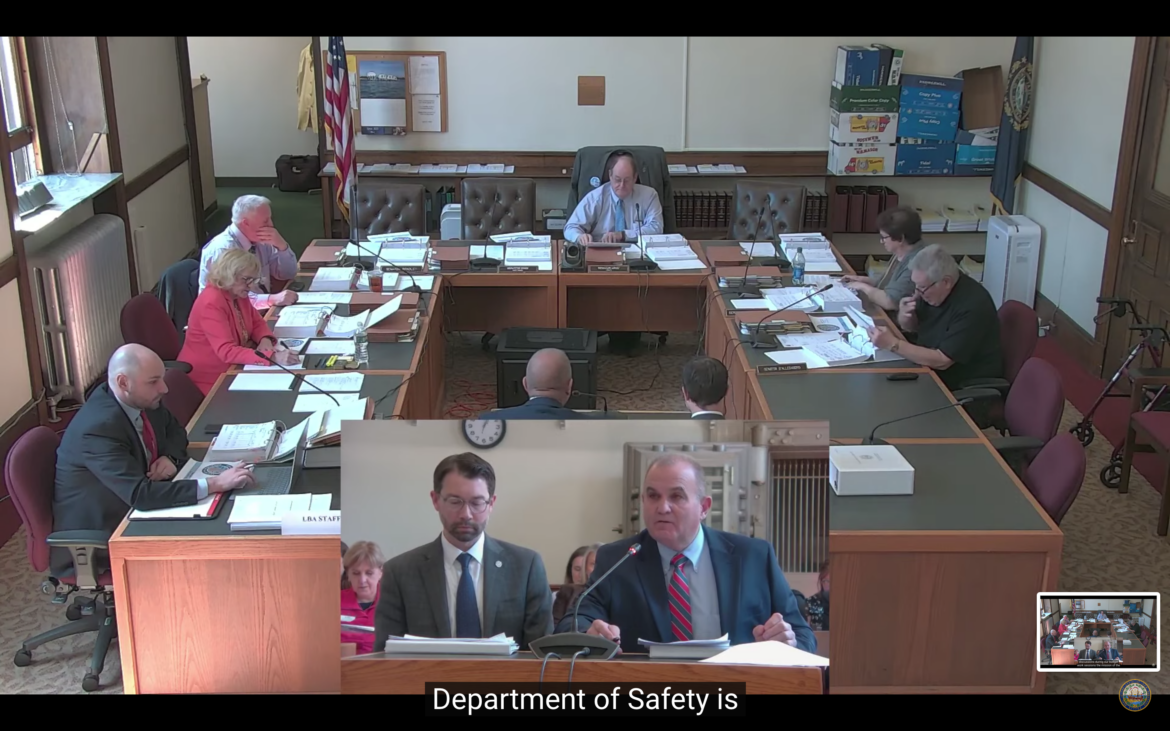By GARRY RAYNO, InDepthNH.org
CONCORD — The state may be in the midst of a run of hundred-million-dollar revenue surpluses, but state agencies warn it may not be enough.
As the Senate continues work on the $15.7 billion budget approved by the House earlier this month, department heads are meeting with the Senate Finance Committee to make their case for priorities that were not funded in that budget.
On Thursday, several state agencies noted the need to train and coordinate responses to public safety threats particularly to schools and noted the growing problem with mass shootings at those facilities around the country.
Department of Safety officials told the committee their highest unfunded priority is a chief of policy and planning to focus on “strengthening operational and tactical coordination across all areas of public safety to prepare first responders for these emerging threats including those associated with school shootings and large events.”
Department of Safety Commissioner Robert Quinn said the threats to public safety continue to rise particularly related to schools.
Last week, Portsmouth High School was closed for a day after a threat was made and a suspect eventually arrested with an AR-15 rifle and other guns, and the next day the Rochester middle school was closed due to a bomb threat.
Education Commissioner Frank Edelblut also said school security is a priority for his agency in asking for $5 million in each of the next two fiscal years to be added to his department’s budget for grants to schools.
“Our objective as a state is to continuously fund these types of activities,” he said, noting nearly $50 million has already been spent to upgrade school security with such things as bullet proof glass, door locking systems, and other investments to make schools safer.
Edelblut noted his agency has secured other grants as well to help with what he called these “responsible investments.”
That was not the only significant problem put before the committee Thursday.
How to fund the state’s highway system as revenues for both the turnpike system and the Highway Fund have not rebounded as quickly as hoped after the pandemic when travel was greatly reduced was also raised as an issue for budget writers to ponder.
The turnpike fund pays for the Blue Star and Spaulding Turnpikes in southeastern New Hampshire from Hampton to Milford, and the Central Turnpike from Nashua to Concord.
Federal highway money cannot be used on the turnpike system or the state would not be able to collect tolls.
During the 2022 fiscal year, the tolls produced $144 million from 112 million transactions, according to David Rodrique, Assistant Commissioner of Transportation.
He noted during the beginning of the pandemic the volume of traffic on the system dropped significantly, has rebounded, but at a slower pace than predicted.
Rodrique noted operating costs are projected to be flat in the next two fiscal years, but there are inflationary costs as well.
“What gets shorted is the capital program and our ability to advance new projects,” he said, and that will be apparent when work begins on the new 10-year highway improvement plan this summer.
Committee member Sen. Lou D’Allesandro, D-Manchester, noted with usage going down, work on the system cannot be done and the roads deteriorate. “That represents a glaring problem for us,” he said.
The work on the 10-year plan will also show the shortfall in the Highway Fund, said Department of Transportation Commissioner Bill Cass.
The fund consists largely of revenues from the gas tax and vehicle registrations and — like the turnpike fund — was negatively impacted by the pandemic.
Lawmakers added $50 million of general fund money to the Highway Fund in the current biennium, and the House’s approved budget adds $10 million for the upcoming biennium.
D’Allesandro noted that has never been done before in the 50 years he has served in Concord.
Cass noted that while the fund will likely have a shortfall, at the end of the next biennium, another problem is the $21 million in Transportation Infrastructure Finance and Innovation Act funds will no longer be going to the bridge fund and enhanced local road aid.
At the end of the next biennium the state has to begin paying down the principal of the loan it borrowed in order to complete the I-93 expansion from the Massachusetts border to Manchester.
“We’ve used a number of one-time sources to help balance the Highway Fund over time,” Cass said, “but there is a structural deficit we have to find a way to prop up and balance.”
He noted there are additional needs beyond what the governor and House had funded.
D’Allesandro said the state has some very difficult problems, noting the transportation money going to the cities and towns will cease when the state begins paying the principal on the TIFIA loan.
“This economy is built on the tourism industry, and they want black roads, clean roads as they fly up those roads now,” he said. “We have some glaring problems we cannot put off any further or we’ll be asking for trouble.”
D’Allesandro noted more and more accidents are taking place on good roads and that ought to be a flag.
The committee will take testimony from agency officials Friday and then begin working on its version of the two-year, biennial operating budget.
The committee has until the end of May to put together its budget package the Senate must vote on by June 6.
Garry Rayno may be reached at garry.rayno@yahoo.com.





